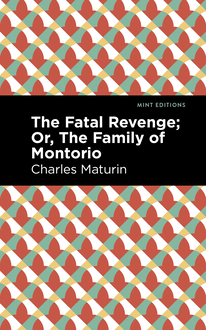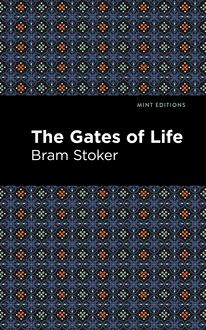-
 Univers
Univers
-
 Ebooks
Ebooks
-
 Livres audio
Livres audio
-
 Presse
Presse
-
 Podcasts
Podcasts
-
 BD
BD
-
 Documents
Documents
-
- Cours
- Révisions
- Ressources pédagogiques
- Sciences de l’éducation
- Manuels scolaires
- Langues
- Travaux de classe
- Annales de BEP
- Etudes supérieures
- Maternelle et primaire
- Fiches de lecture
- Orientation scolaire
- Méthodologie
- Corrigés de devoir
- Annales d’examens et concours
- Annales du bac
- Annales du brevet
- Rapports de stage
La lecture à portée de main
Vous pourrez modifier la taille du texte de cet ouvrage
Découvre YouScribe en t'inscrivant gratuitement
Je m'inscrisDécouvre YouScribe en t'inscrivant gratuitement
Je m'inscrisEn savoir plus
Vous pourrez modifier la taille du texte de cet ouvrage
En savoir plus

Description
A poverty-stricken man suddenly inherits a fortune and is guided by the mysterious Lucio who introduces him to a world of fame, greed and materialism. As he navigates a path of destruction, he begins to question his partner’s motives.
Geoffrey Tempest is a struggling writer on the verge of homelessness. He lives in a bustling and expensive city that bends to the rich and powerful. His life dramatically changes when he receives an inheritance from a deceased relative. This sparks the arrival of Lucio, a gentleman who is eager to help Geoffrey manage his wealth. He introduces the new heir to vices that cause more harm than good. Geoffrey soon discovers Lucio’s true identity and must choose between the fruits of the spirit and desires of the flesh.
The Sorrows of Satan is a commentary on the ancient battle of good versus evil. Corelli uses contemporary London to display man’s worldly temptations. The story centers opposing ideals driven by a charismatic and undeniable force.
With an eye-catching new cover, and professionally typeset manuscript, this edition of The Sorrows of Satan is both modern and readable.
Sujets
Informations
| Publié par | Mint Editions |
| Date de parution | 09 mars 2021 |
| Nombre de lectures | 0 |
| EAN13 | 9781513278186 |
| Langue | English |
| Poids de l'ouvrage | 3 Mo |
Informations légales : prix de location à la page 0,0500€. Cette information est donnée uniquement à titre indicatif conformément à la législation en vigueur.
Extrait
The Sorrows of Satan
Marie Corelli
The Sorrows of Satan was first published in 1895.
This edition published by Mint Editions 2021.
ISBN 9781513277776 | E-ISBN 9781513278186
Published by Mint Editions ®
minteditionbooks.com
Publishing Director: Jennifer Newens
Design & Production: Rachel Lopez Metzger
Project Manager: Micaela Clark
Typesetting: Westchester Publishing Services
C ONTENTS I II III IV V VI VII VIII IX X XI XII XIII XIV XV XVI XVII XVIII XIX XX XXI XXII XXIII XXIV XXV XXVI XXVII XXVIII XXIX XXX XXXI XXXII XXXIII XXXIV XXXV XXXVI XXXVII XXXVIII XXXIX XL XLI XLII
I
D o you know what it is to be poor? Not poor with the arrogant poverty complained of by certain people who have five or six thousand a year to live upon, and who yet swear they can hardly manage to make both ends meet, but really poor,—downright, cruelly, hideously poor, with a poverty that is graceless, sordid and miserable? Poverty that compels you to dress in your one suit of clothes till it is worn threadbare,—that denies you clean linen on account of the ruinous charges of washerwomen,—that robs you of your own self-respect, and causes you to slink along the streets vaguely abashed, instead of walking erect among your fellow-men in independent ease,—this is the sort of poverty I mean. This is the grinding curse that keeps down noble aspiration under a load of ignoble care; this is the moral cancer that eats into the heart of an otherwise well-intentioned human creature and makes him envious and malignant, and inclined to the use of dynamite. When he sees the fat idle woman of society passing by in her luxurious carriage, lolling back lazily, her face mottled with the purple and red signs of superfluous eating,—when he observes the brainless and sensual man of fashion smoking and dawdling away the hours in the Park, as if all the world and its millions of honest hard workers were created solely for the casual diversion of the so-called ‘upper’ classes,—then the good blood in him turns to gall, and his suffering spirit rises in fierce rebellion, crying out—“Why in God’s name, should this injustice be? Why should a worthless lounger have his pockets full of gold by mere chance and heritage, while I, toiling wearily from morn till midnight, can scarce afford myself a satisfying meal?”
Why indeed! Why should the wicked flourish like a green bay-tree? I have often thought about it. Now however I believe I could help to solve the problem out of my own personal experience. But… such an experience! Who will credit it? Who will believe that anything so strange and terrific ever chanced to the lot of a mortal man? No one. Yet it is true;—truer than much so-called truth. Moreover I know that many men are living through many such incidents as have occurred to me, under precisely the same influence, conscious perhaps at times, that they are in the tangles of sin, but too weak of will to break the net in which they have become voluntarily imprisoned. Will they be taught, I wonder, the lesson I have learned? In the same bitter school, under the same formidable taskmaster? Will they realize as I have been forced to do,—aye, to the very fibres of my intellectual perception,—the vast, individual, active Mind, which behind all matter, works unceasingly, though silently, a very eternal and positive God? If so, then dark problems will become clear to them, and what seems injustice in the world will prove pure equity! But I do not write with any hope of either persuading or enlightening my fellow-men. I know their obstinacy too well;—I can gauge it by my own. My proud belief in myself was, at one time, not to be outdone by any human unit on the face of the globe. And I am aware that others are in similar case. I merely intend to relate the various incidents of my career in due order exactly as they happened,—leaving to more confident heads the business of propounding and answering the riddles of human existence as best they may.
During a certain bitter winter, long remembered for its arctic severity, when a great wave of intense cold spread freezing influences not alone over the happy isles of Britain, but throughout all Europe, I, Geoffrey Tempest, was alone in London and well-nigh starving. Now a starving man seldom gets the sympathy he merits,—so few can be persuaded to believe in him. Worthy folks who have just fed to repletion are the most incredulous, some of them being even moved to smile when told of existing hungry people, much as if these were occasional jests invented for after-dinner amusement. Or, with that irritating vagueness of attention which characterizes fashionable folk to such an extent that when asking a question they neither wait for the answer nor understand it when given, the well-dined groups, hearing of some one starved to death, will idly murmur ‘How dreadful!’ and at once turn to the discussion of the latest ‘fad’ for killing time, ere it takes to killing them with sheer ennui . The pronounced fact of being hungry sounds coarse and common, and is not a topic for polite society, which always eats more than sufficient for its needs. At the period I am speaking of however, I, who have since been one of the most envied of men, knew the cruel meaning of the word hunger, too well,—the gnawing pain, the sick faintness, the deadly stupor, the insatiable animal craving for mere food, all of which sensations are frightful enough to those who are, unhappily, daily inured to them, but which when they afflict one who has been tenderly reared and brought up to consider himself a ‘gentleman,’—God save the mark! are perhaps still more painful to bear. And I felt that I had not deserved to suffer the wretchedness in which I found myself. I had worked hard. From the time my father died, leaving me to discover that every penny of the fortune I imagined he possessed was due to swarming creditors, and that nothing of all our house and estate was left to me except a jewelled miniature of my mother who had lost her own life in giving me birth,—from that time I say, I had put my shoulder to the wheel and toiled late and early. I had turned my University education to the only use for which it or I seemed fitted,—literature. I had sought for employment on almost every journal in London,—refused by many, taken on trial by some, but getting steady pay from none. Whoever seeks to live by brain and pen alone is, at the beginning of such a career, treated as a sort of social pariah. Nobody wants him,—everybody despises him. His efforts are derided, his manuscripts are flung back to him unread, and he is less cared for than the condemned murderer in gaol. The murderer is at least fed and clothed,—a worthy clergyman visits him, and his gaoler will occasionally condescend to play cards with him. But a man gifted with original thoughts and the power of expressing them, appears to be regarded by everyone in authority as much worse than the worst criminal, and all the ‘jacks-in-office’ unite to kick him to death if they can. I took both kicks and blows in sullen silence and lived on,—not for the love of life, but simply because I scorned the cowardice of self-destruction. I was young enough not to part with hope too easily;—the vague idea I had that my turn would come,—that the ever-circling wheel of Fortune would perchance lift me up some day as it now crushed me down, kept me just wearily capable of continuing existence,—though it was merely a continuance and no more. For about six months I got some reviewing work on a well-known literary journal. Thirty novels a week were sent to me to ‘criticise,’—I made a habit of glancing hastily at about eight or ten of them, and writing one column of rattling abuse concerning these thus casually selected,—the remainder were never noticed at all. I found that this mode of action was considered ‘smart,’ and I managed for a time to please my editor who paid me the munificent sum of fifteen shillings for my weekly labour. But on one fatal occasion I happened to change my tactics and warmly praised a work which my own conscience told me was both original and excellent. The author of it happened to be an old enemy of the proprietor of the journal on which I was employed;—my eulogistic review of the hated individual, unfortunately for me, appeared, with the result that private spite outweighed public justice, and I was immediately dismissed.
After this I dragged on in a sufficiently miserable way, doing ‘hack work’ for the dailies, and living on promises that never became realities, till, as I have said, in the early January of the bitter winter alluded to, I found myself literally penniless and face to face with starvation, owing a month’s rent besides for the poor lodging I occupied in a back street not far from the British Museum. I had been out all day trudging from one newspaper office to another, seeking for work and finding none. Every available post was filled. I had also tried, unsuccessfully, to dispose of a manuscript of my own,—a work of fiction which I knew had some merit, but which all the ‘readers’ in the publishing offices appeared to find exceptionally worthless. These ‘readers’ I learned, were most of them novelists themselves, who read other people’s productions in their spare moments and passed judgment on them. I have always failed to see the justice of this arrangement; to me it seems merely the way to foster mediocrities and suppress originality. Common sense points out the fact that the novelist ‘reader’ who has a place to maintain for himself in literature would naturally rather encourage work that is likely to prove ephemeral, than that which might possibly take a higher footing than his own. Be this as it may, and however good or bad the system, it was entirely prejudicial to me and my literary offspring. The last publisher I tried was a kindly man who looked at my shabby clothes and gaunt face with some commiseration.
“I’m sorry,” said he, “very sorry, but my r
-
 Univers
Univers
-
 Ebooks
Ebooks
-
 Livres audio
Livres audio
-
 Presse
Presse
-
 Podcasts
Podcasts
-
 BD
BD
-
 Documents
Documents
-
Jeunesse
-
Littérature
-
Ressources professionnelles
-
Santé et bien-être
-
Savoirs
-
Education
-
Loisirs et hobbies
-
Art, musique et cinéma
-
Actualité et débat de société
-
Jeunesse
-
Littérature
-
Ressources professionnelles
-
Santé et bien-être
-
Savoirs
-
Education
-
Loisirs et hobbies
-
Art, musique et cinéma
-
Actualité et débat de société
-
Actualités
-
Lifestyle
-
Presse jeunesse
-
Presse professionnelle
-
Pratique
-
Presse sportive
-
Presse internationale
-
Culture & Médias
-
Action et Aventures
-
Science-fiction et Fantasy
-
Société
-
Jeunesse
-
Littérature
-
Ressources professionnelles
-
Santé et bien-être
-
Savoirs
-
Education
-
Loisirs et hobbies
-
Art, musique et cinéma
-
Actualité et débat de société
- Cours
- Révisions
- Ressources pédagogiques
- Sciences de l’éducation
- Manuels scolaires
- Langues
- Travaux de classe
- Annales de BEP
- Etudes supérieures
- Maternelle et primaire
- Fiches de lecture
- Orientation scolaire
- Méthodologie
- Corrigés de devoir
- Annales d’examens et concours
- Annales du bac
- Annales du brevet
- Rapports de stage




















